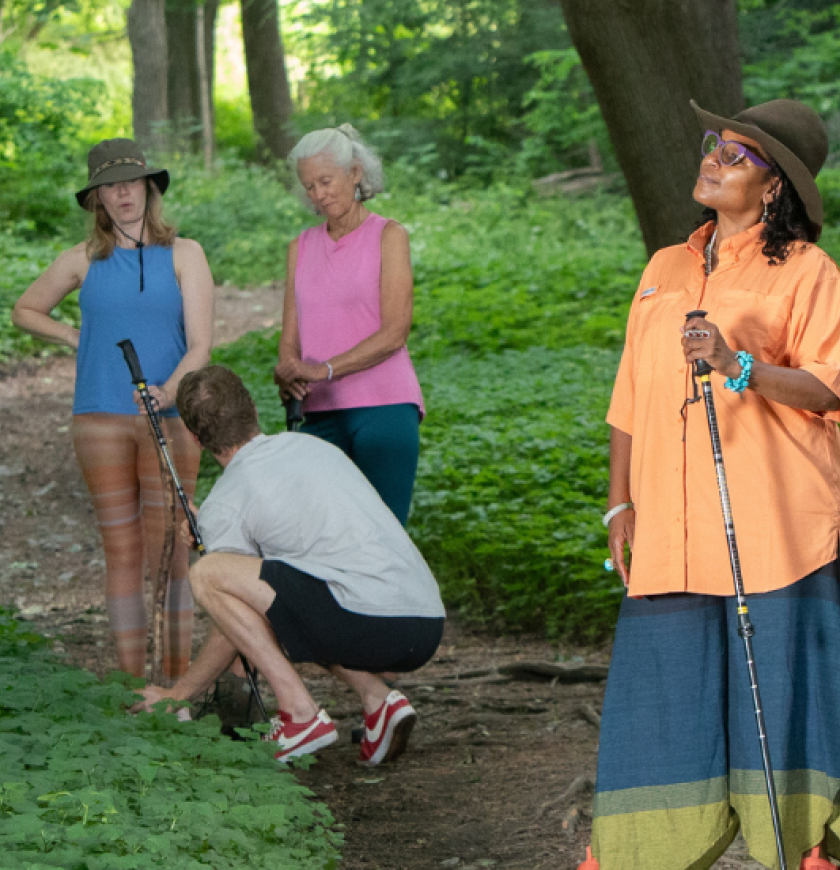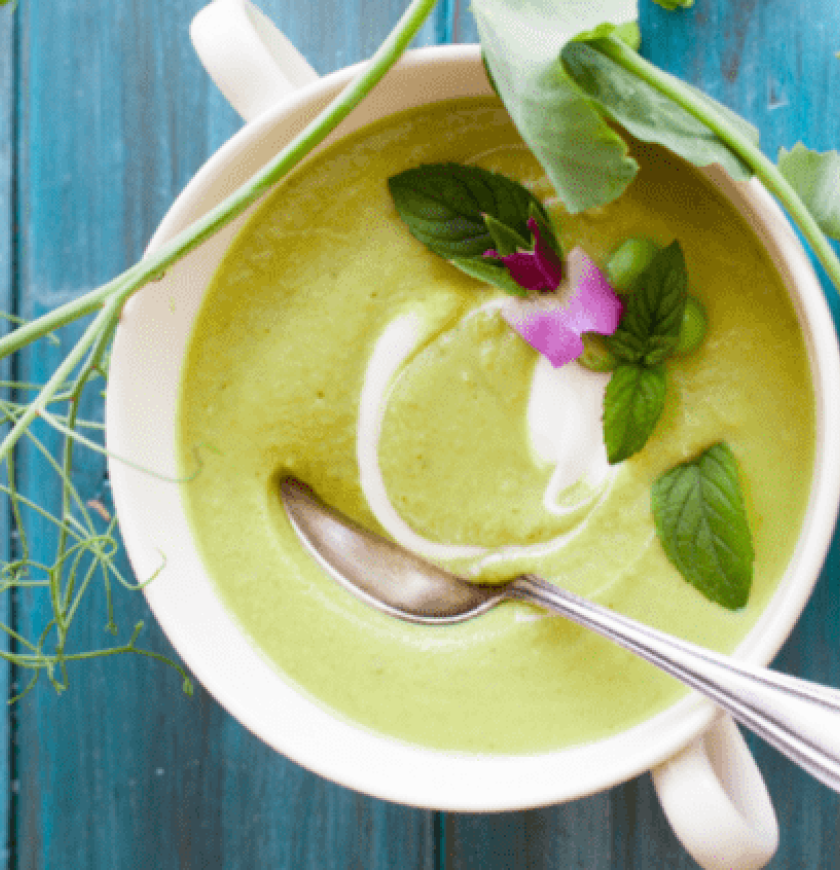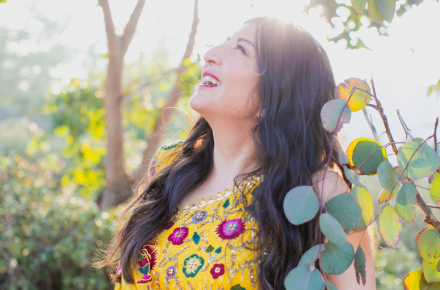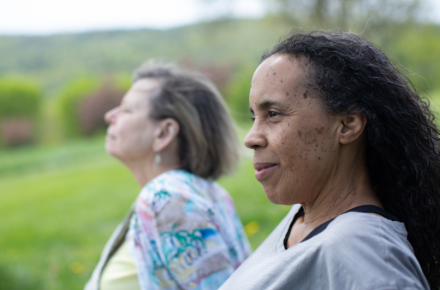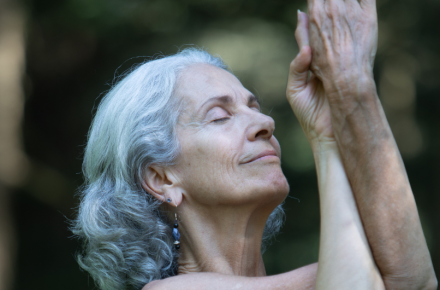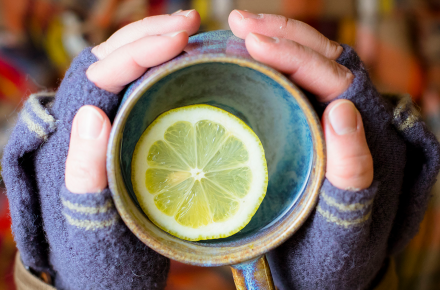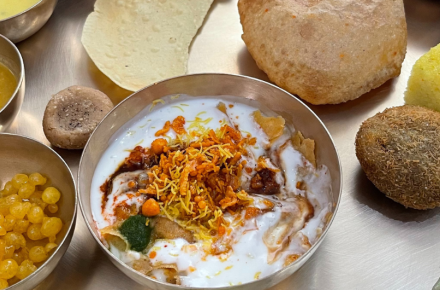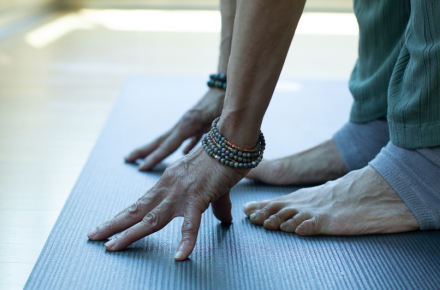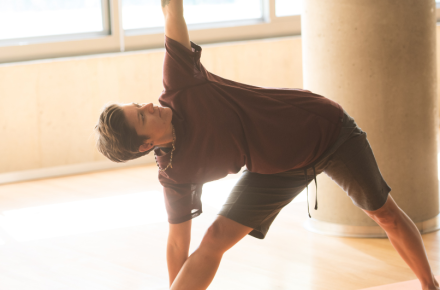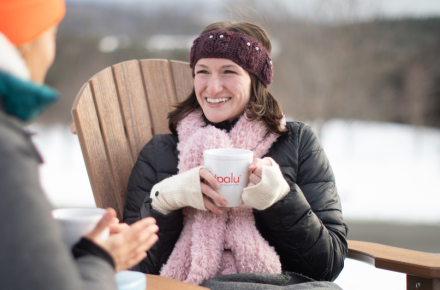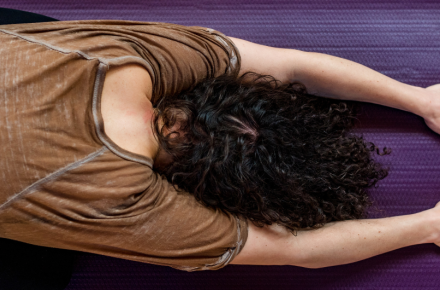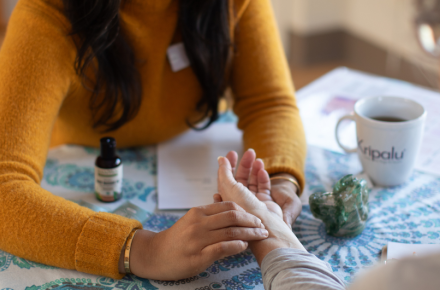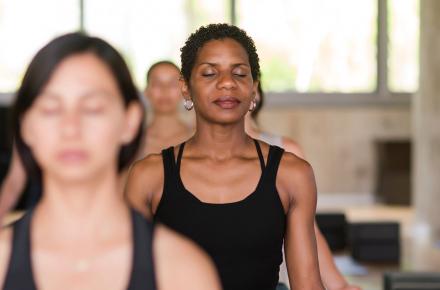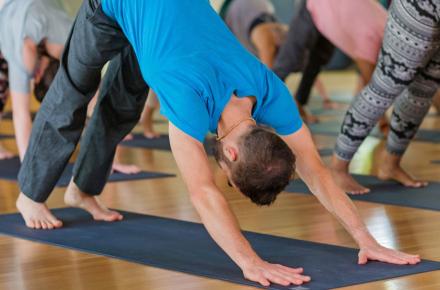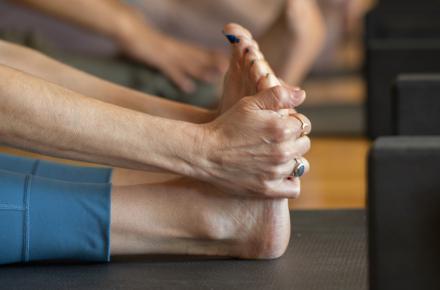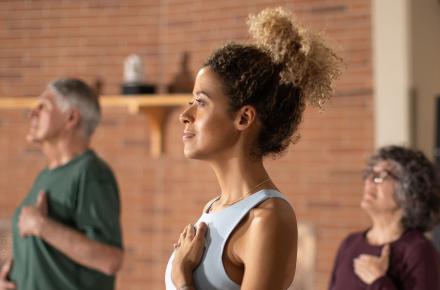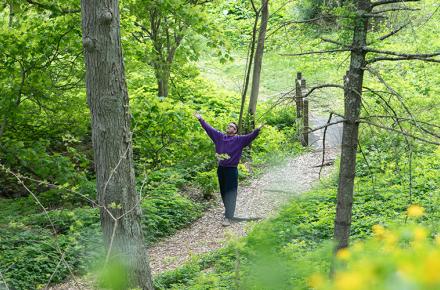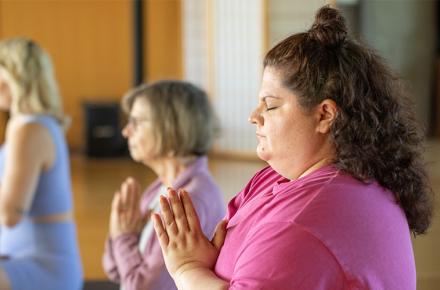Nutritional Changes: Making a Beginning
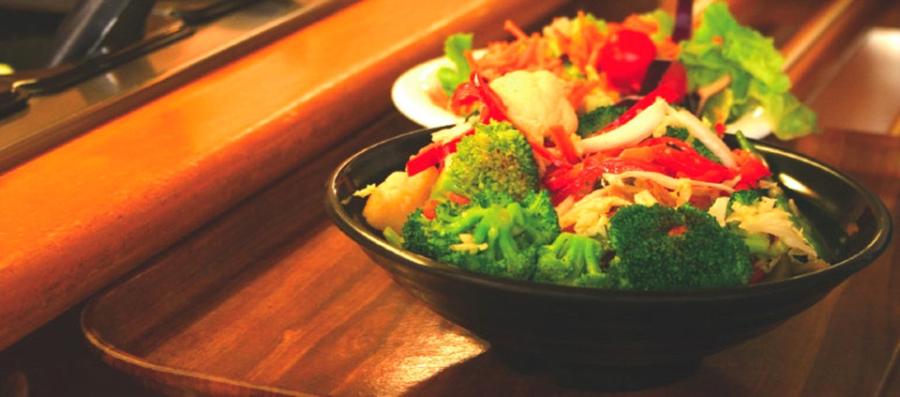
by Laura Didyk
In health there is freedom.
—Henri Frederic Amiel, Swiss philosopher, poet, and critic
I used to think that I knew everything there was to know about nutrition. At a young age, I educated myself about organic, unprocessed food and taught myself how to cook, bake my own bread, and eat simply. I was well versed in the benefits of whole foods, but I neglected to look at the whole picture. Without the emotional and spiritual strength to support my nutritional knowledge, I found myself chin deep in a whole host of habits that were holding me back from living the life I imagined and wanted for myself. And I, like so many people, was prone to either trying to change it all at once or doing nothing at all.
Making a big change is much more exhilarating than doing nothing, but one must approach with caution. As with new relationships, I’ve always loved the very early stages of my personal health revolutions—the possibility in the air, the sense that I am on the edge of something monumental and life-changing. Things are going to be different this time. But my life has been marked by enthusiastic attempts at creating a healthier version of myself, followed by an unmistakable sense of failure.
I have had long stretches of eating badly: in diners across the country, in college meal halls, and, years later, in my own dining room. I have gained weight and lost weight; been an athlete and, nearly overnight, not been one. I have changed everything—given up sugar, caffeine, and nicotine—then decided I was being too rigid and gleefully started in again on all three, at once. I’ve spent months at a time doing daily yoga, then fizzled out and instead spent the time in front of the television.
What I didn’t know for a long time was that my expectations for change, for immediate and overnight health, were completely unrealistic and unsustainable. I wasn’t failing; I was setting myself up for the impossible. People are slow to change. Real, deep, permanent change happens over time. When the attempts at change are intentional, made with awareness and self-compassion, and approached by taking baby steps, it really can be lasting. We can also trust that when we change one thing, other areas in our lives will follow suit.
I’ve managed to cover some miles between being overwhelmed with all there was to change and fix, and who I am now—on my way to a self-nourishing life, enjoying movement and exercise, healthy and excited about food (albeit fostering a tenuous relationship with caffeine). There wasn’t one day, one teacher, one book I read, or one moment that turned things around. The process has been, well, a process—a gradual and slow education first about my own body and then about the foods and other substances I was choosing to put into it. I know what makes me sick now and to what degree. I know what gives me energy and what doesn’t. I know what makes me gain weight and what helps me lose it. I know how to eat so I feel nourished, satisfied, and not deprived. From all of my experimenting, this is what else I’ve learned:
First Steps
While our health isn’t just about food, food is a tangible, accessible place to start. The great news is that, approached with an attitude of curiosity and adventure instead of dread, the path to sustainable nutrition can be one of the most gratifying and exciting journeys we can ever embark on.
Taking those first few steps on the path, however, can be overwhelming. There are as many nutritional approaches, beliefs, and philosophies as there are food choices: low carb, no carb, Ayurveda, macrobiotics, diets that promote low-fat or fat-free foods as the path to weight loss, diets that prescribe a fixed number of calories per day, diets that claim their way is the best way, the healthiest way, the only way. Who are we to believe? Listen to? Follow?
The answer is, as you may have guessed: ourselves. According to Kripalu presenter Danny Arguetty, you must take into account what he calls bio-individualism, each of our unique needs, makeups, preferences, challenges, and responses to food. For example, depending on your ethnic background, genetic makeup, and several other factors, you may find ease in digesting and assimilating meat and/or dairy products, while someone else, with a differing background, wont be able to tolerate or process them. In order to know these things about ourselves, we must learn to pay attention to our bodies, watch its reactions, listen, and respond accordingly.
Some of us need more fat, protein, or carbohydrates than others, writes Mark Hyman, MD, in his best-selling book UltraMetabolism. You need to find what works for you. He goes on to explain that while there is no one perfect diet for everyone, whole, unprocessed, real food is offered by nature to keep us at a healthy weight and encourage an efficient metabolic process in our bodies. Many nutritionists, doctors, and health professionals are beginning to agree that whole, unprocessed foods are the most beneficial not only for weight loss but for overall health and wellness. Whole foods often contain a mixture of protein, fat, carbohydrates, and fiber. Fiber, Dr. Hyman stresses, is often the missing link in our attempts to cultivate a healthy metabolism and lose weight. Fiber lowers the glycemic load of our meals, which means we burn more calories during digestion, stay full and satiated longer, and reduce our appetite by keeping our blood-sugar levels steadier. Some examples of whole foods, many of which include fiber and good fats, are beans, whole grains, nuts, extra-virgin olive oil, fruits, and vegetables.
Danny addresses the whole-foods approach with what he refers to as the holy question. Ask yourself: How far away from the earth is my food? The closer your food is to the earth, the more nutritious, the more energizing, and the more nourishing it is. This doesn’t mean you need to stop eating the foods in your current diet that are a bit farther from the ground; you can begin to add whole foods to your cabinets and start encouraging yourself toward making them a substantial and central part of your diet.
Practical Suggestions
If you eat white rice two times a week, substitute brown rice or quinoa on one of those nights. If you eat a sandwich on white bread or part-white bread for lunch everyday, try a multigrain or whole-grain bread two days a week. If you tend to go straight for your coffee in the morning, fit a glass of water in first, then have a quick protein-rich breakfast—an egg or two, or a handful of almonds with a piece of fruit. You may be surprised to find that with the right recipes and a combination of colorful foods, you may enjoy some foods you were sure you wouldn’t.
Starting Today
The other aspects of health and whole living are important to keep in mind as well. Sleep, levels of stress, frequency and intensity of physical activity, and other ways that we nourish ourselves play key roles in how we metabolize and process food. Getting educated about what we eat, how we eat, and what happens in our body afterwards takes time and patience.
In the meantime, there are five things that you can do starting today: (1) slow down, chew your food, (2) establish a regular pattern of eating, (3) include good fats in your diet, such as avocado and extra-virgin olive oil, (4) boost your fiber intake with beans, nuts and seeds, vegetables and fruits, and whole grains, and (5) avoid artificial sweeteners and high fructose corn syrup. You can also add five of Danny's 50 Ways to Support Healthy Weight Loss: (1) cut out processed food, (2) avoid eating after 7:00 or 8:00 pm, (3) read food labels, (4) make a commitment to leaving work on time, and (5) hug someone.
And remember, the speed at which we create lasting change is not as important as simply making a beginning.
Laura Didyk, MFA, is an essayist, poet, and a former athlete with a lifelong passion for nutritional health and optimal living. She has had her work published in literary magazines throughout the country, and has been awarded fellowships at Yaddo, the MacDowell Colony, and the Virginia Center for Creative Arts.

